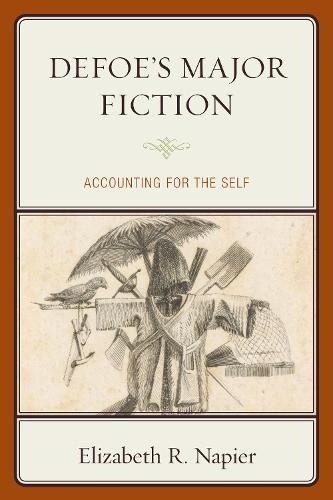Full Product Details
Author: Elizabeth R. Napier
Publisher: Rowman & Littlefield
Imprint: University of Delaware Press
Dimensions:
Width: 15.20cm
, Height: 1.40cm
, Length: 22.00cm
Weight: 0.281kg
ISBN: 9781611496154
ISBN 10: 1611496152
Pages: 210
Publication Date: 28 May 2019
Audience:
Professional and scholarly
,
Professional & Vocational
Format: Paperback
Publisher's Status: Active
Availability: Out of stock

The supplier is temporarily out of stock of this item. It will be ordered for you on backorder and shipped when it becomes available.
Reviews
Napier's study of Daniel Defoe is literary criticism at its best: attentive to text, informed (but not dominated) by theory, written in lucid-indeed lyrical-prose. Napier begins with Defoe's complicated invocations of genre in the major fiction. Spiritual autobiography jockeys for interpretive dominance with picaresque fiction in Robinson Crusoe; criminal biography wars with conduct literature for narrative control of Moll Flanders and Roxana. Such generic instability demonstrates the difficulty of telling a story of self, a point further emphasized by accounts that are changed in the retelling or that never get fully told in the first place. From the first chapter's introduction of the problem of the narrative (and narrating) self, Napier moves on to chapters centered on dominant versions of the self in Defoe: the performing self, the compulsive self, the divided self. Each chapter provides ample evidence that the problematic of accounting for the self in these various ways is evident in all of Defoe's major fiction, though, predictably, Robinson Crusoe, Moll Flanders, and Roxana receive the most detailed attention. Napier's elegant, comprehensive, judicious study fully convinces that accounting for the self is a central concern of Defoe's major fiction. Summing Up: Essential. Lower-division undergraduates and above. * CHOICE * Throughout this study, Napier's knowledge of scholarship on Defoe's major fictions and her breadth of commentary on novel theory as it relates to narration and the construction of the self are as thorough asthey are comprehensive.... Ultimately her argument is strong and clear... [T]his work is a valuable contribution to the study of Defoe's major fiction. * Eighteenth-Century Fiction *
Napier's study of Daniel Defoe is literary criticism at its best: attentive to text, informed (but not dominated) by theory, written in lucid—indeed lyrical—prose. Napier begins with Defoe's complicated invocations of genre in the major fiction. Spiritual autobiography jockeys for interpretive dominance with picaresque fiction in Robinson Crusoe; criminal biography wars with conduct literature for narrative control of Moll Flanders and Roxana. Such generic instability demonstrates the difficulty of telling a story of self, a point further emphasized by accounts that are changed in the retelling or that never get fully told in the first place. From the first chapter's introduction of the problem of the narrative (and narrating) self, Napier moves on to chapters centered on dominant versions of the self in Defoe: the performing self, the compulsive self, the divided self. Each chapter provides ample evidence that the problematic of accounting for the self in these various ways is evident in all of Defoe's major fiction, though, predictably, Robinson Crusoe, Moll Flanders, and Roxana receive the most detailed attention. Napier's elegant, comprehensive, judicious study fully convinces that accounting for the self is a central concern of Defoe's major fiction. Summing Up: Essential. Lower-division undergraduates and above. * CHOICE * Throughout this study, Napier’s knowledge of scholarship on Defoe’s major fictions and her breadth of commentary on novel theory as it relates to narration and the construction of the self are as thorough asthey are comprehensive.... Ultimately her argument is strong and clear... [T]his work is a valuable contribution to the study of Defoe’s major fiction. * Eighteenth-Century Fiction *
Author Information
Elizabeth R. Napier is professor of English and American literatures at Middlebury College.




